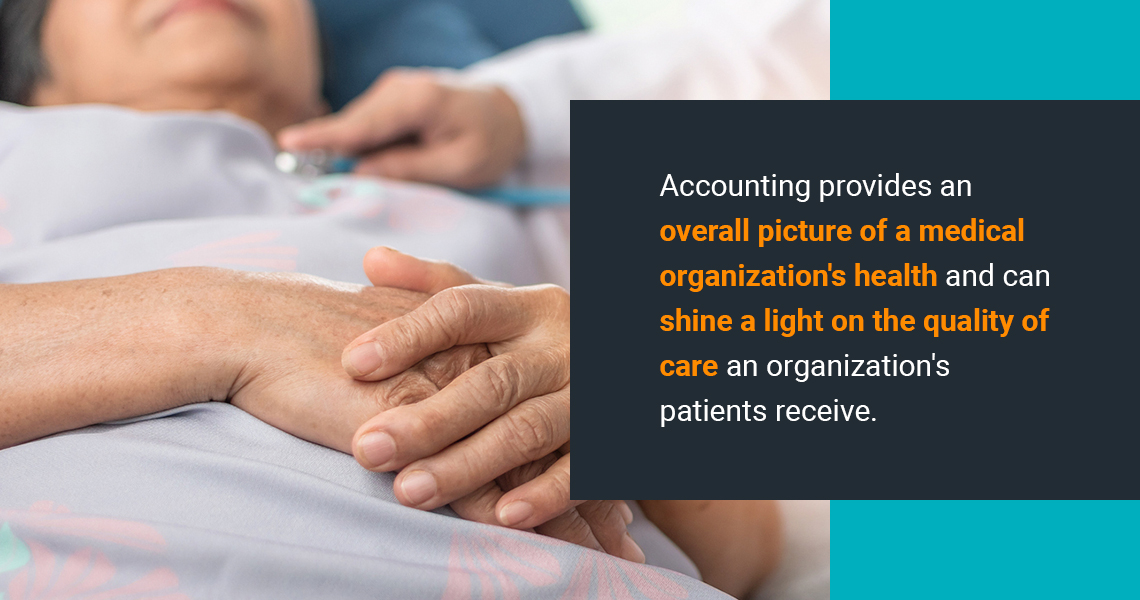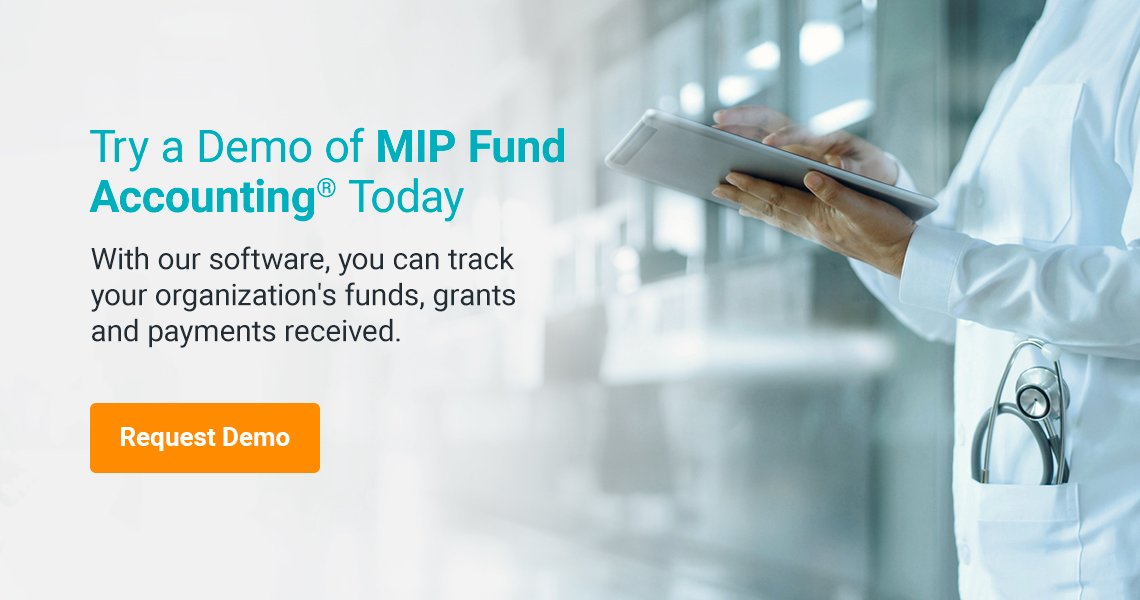Reading Time: 4 minutes
While many hospitals and major medical centers are nonprofit organizations, money still makes them tick. Medical providers need funding to purchase equipment and pay staff salaries. Depending on the provider, funds can come from various sources, such as insurance companies, major donors, and patients who pay for their care out of pocket.
Since the goal of a medical provider is often to provide the best possible care to patients regardless of their ability to pay, following sound accounting principles is essential. Let’s look at the impact of accounting on the patient and see what your organization can do to improve its accounting methods and patient experience.
How Healthcare Accounting Practices Affect Day-To-Day Operations
A hospital or medical center needs to have a solid accounting method in place for the facility to operate smoothly and without interruption. Some of the accounting concerns that affect the daily operations of a healthcare facility include:
- Managing accounts receivable: When a patient receives care or treatment from a provider, the provider must bill for the treatment. Often, the bill goes to the patient’s insurance company, which negotiates with the medical facility based on its rates. If the patient is uninsured, they might receive an invoice from the provider. If the invoices don’t get paid, it can directly affect the facility’s ability to provide further services or treatments to other patients. In some cases, a medical facility might need to follow up on invoices, particularly if insurance doesn’t pay.
- Creating and implementing budgets: Medical facilities have a lot of expenses, from buying equipment and supplies to ensuring vendors get paid. A budget is necessary to ensure the organization doesn’t spend more than it brings in or receives from grants and donors. A budget also ensures the facility orders the supplies it needs when necessary so that physicians and nursing teams don’t run out of the equipment and materials needed to provide stellar patient care.
- Managing payroll: Doctors, nurses, maintenance staff, receptionists, and everyone who works at a medical facility needs to get paid on time. The appropriate payroll taxes need to be withheld from their checks. Payroll issues can trickle down to patients, as employees who don’t get paid on time are more likely to disengage from their work or call out. An efficient payroll system is also critical for maintaining appropriate staffing levels.
- Managing grants and funding: If your healthcare organization is a nonprofit, it most likely receives grants and donor funding. Often, grants need to be used for a specific purpose, and donors might require their funds to be put toward particular projects or initiatives. Ensuring funds are appropriately allocated impacts your organization’s ability to receive them in the future and affects the care you can give patients.
Importance of Healthcare Accounting
Financial accounting in healthcare provides an overall picture of a medical organization’s health and can shine a light on the quality of care an organization’s patients receive. Every choice made in a hospital or medical facility directly affects patient outcomes.
For example, suppose a healthcare organization reviews its annual budget and finds it’s regularly overspending on supplies. In that case, it can examine ways to reduce those expenditures without cutting corners or adversely impacting the quality of care patients receive. Similarly, suppose an organization reviews its payroll and finds that it regularly doesn’t have the required number of staff working during a shift. In that case, it can adjust its staffing levels to improve care quality.
Accounting in healthcare is also critical for ensuring an organization receives the funding it needs to operate. If grants and donors primarily fund an organization, the facility needs to nurture relationships with its donors to keep them contributing. It also needs to know when grant applications are due and how to submit the appropriate proposals for grant funding.
Common Healthcare Accounting Problems
When a healthcare organization has difficulty keeping up with its accounting, the quality of care suffers, as does the organization’s overall efficiency. Some common issues in healthcare accounting include:
- Limited healthcare billing and coding knowledge: Insurance companies expect medical providers to use specific codes when issuing invoices. In addition to understanding general accounting principles, a person working in the accounting department of a hospital or medical facility needs to understand medical billing and coding. Training anyone who works in the department is a must.
- Lack of reporting and budget follow-up: A budget isn’t a “set it and forget it” thing. It needs regular review and follow-up to be effective. Expenses and income need to be reported and tracked. If necessary, the budget should be adjusted monthly or quarterly to better align with the organization’s financial reality.
- No accountability in accounts receivable: Not every patient who comes in for treatment will be able to pay or have the appropriate level of insurance. Even if a patient can’t pay, it’s critical that the organization not let the bill fall through the cracks. Ideally, a healthcare organization will have a system in place to connect with patients who have difficulty paying and have access to programs that help cover expenses for people who can’t pay.
- Using outdated technology: Many accounting tasks can and should be automated to improve follow-up and quality of care. Using updated technology and accounting software designed with the unique needs of a medical facility allows your organization to automate specific tasks and focus where it matters most: on the patient.
Patient-Focused Accounting
Making subtle shifts to your organization’s accounting methods helps focus on the patient and streamlines their care and treatment. One way to provide patient-focused accounting is to get the necessary payment information before the encounter begins.
When they book an appointment, take down their insurance information or ask if they plan on self-paying. Then, let them know what their responsibility will be. You might also ask for a payment method before the encounter starts, so your practice or facility can automatically process a payment when the encounter ends.
Getting patient information immediately helps to minimize the wait time and paperwork involved. It also helps your healthcare organization focus on crucial tasks rather than chasing down patients to get paid for medical bills.
Try a Demo of MIP Accounting® Today
If your healthcare organization wants to focus on serving patients, using a dedicated fund accounting software solution helps you do that. With MIP Accounting®, you can track your organization’s funds, grants and payments received. Request a demo today to see how it works.
Share this post







